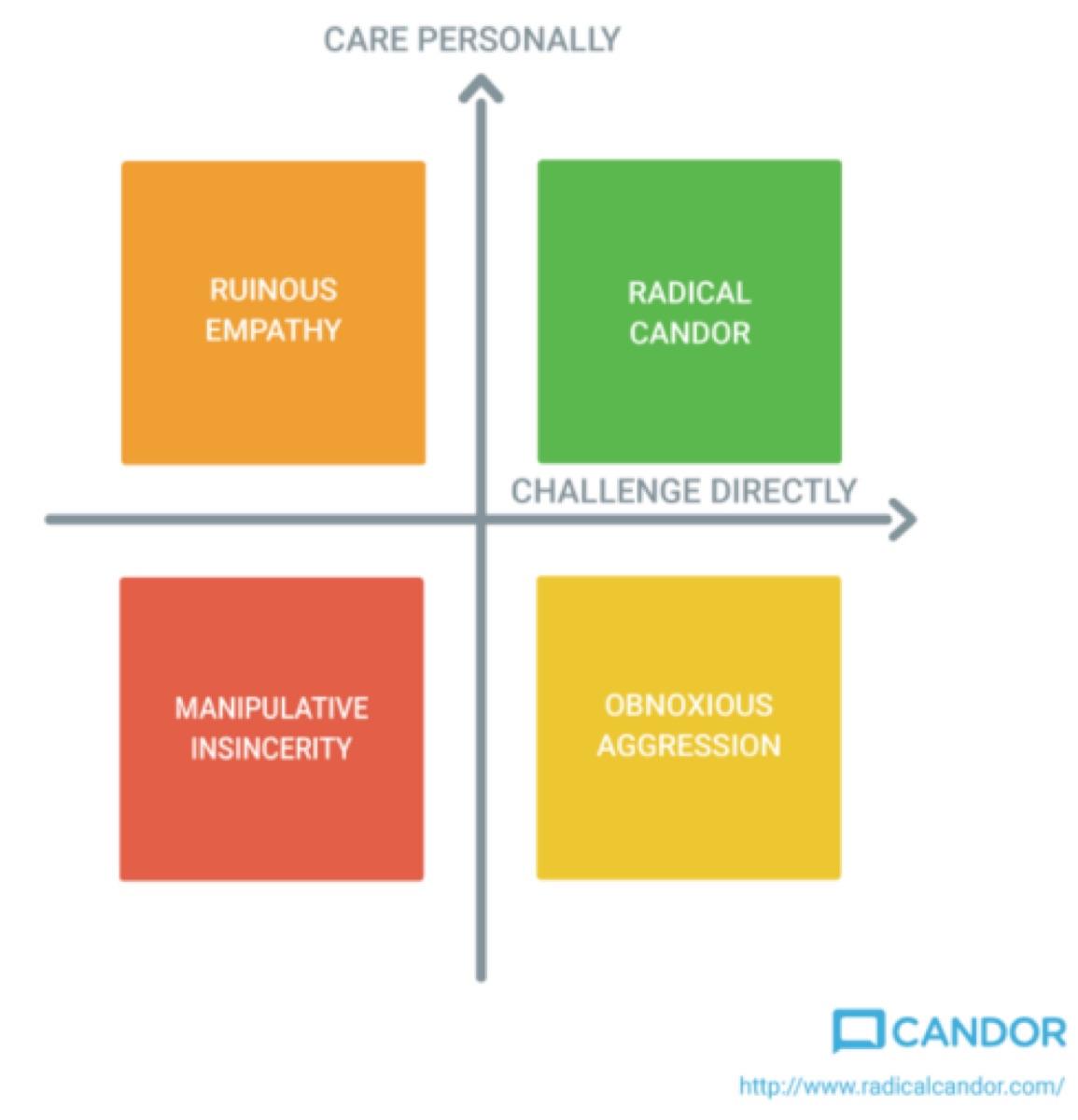“Suck It Up”: A Guide To Giving And Receiving Feedback Like A Pro
Curated from: bloopglobal.com
Ideas, facts & insights covering these topics:
12 ideas
·87 reads
1
2
Explore the World's Best Ideas
Join today and uncover 100+ curated journeys from 50+ topics. Unlock access to our mobile app with extensive features.
Experience Is The Best Teacher They Say
Earlier this week, I had a feedback experience that shook me up a bit. I was halfway through my course preparation task for my boss’ business coaching brand when I decided to get feedback on what I had done. To be honest, I was really proud of what I had done so far and I was convinced my boss was going to like it too. Sike! I was wrong.
My boss took one good look at the work and said it wasn’t good enough and that I had veered off the task. I was heartbroken, to say the least. The time I had invested, the research I thought I had done so well, all gone down the drain.
3
20 reads
I refused to accept it. I tried to defend my work, tried to get him to see some good in what I was presenting. But he knew what he wanted in that course and I was nowhere near what was required.
Eventually, I gave up my defending and listened to his corrections and suggestions. Honestly, at that moment, I lost hope for the task and started taking his feedback with a pinch of salt.
3
14 reads
The After Nap Realisation
Later in the day (after I had taken a much-needed power nap to calm my boiling nerves) I sat down to analyze the feedback my boss had given me and realized he was right after all. I had veered off the work and I would have wasted more time on it if I hadn’t asked for his candid feedback. I started the task all over again, this time with a clearer mind, and when I went back for his feedback a second time, he found the work satisfactory.
3
6 reads
We All Need To Suck It Up Sometimes
As human beings, we never like to be in the wrong. We are more receptive to positive feedback and praise. In the world of work, however, things are not always dandy.
In order to do work that matters and get results, you need to be good at accepting and giving feedback to and from your teammates, your managers, and even yourself.
3
4 reads
Let’s get this clear: Feedback and criticism Are Different
Yes, feedback is sometimes a form of criticism, but the goal is different from actual criticism.
Criticism just highlights how someone or something is at fault, without giving ways it can be made better. Feedback is meant to do the exact opposite. While criticism focuses on weaknesses, feedback is meant to build strengths. Criticism deflates morale, feedback inspires. While criticism points to you as the problem, feedback finds ways to make things better.
5
4 reads
Giving Feedback
I read a quote in an article on Medium that said “The value of feedback is measured at the other person’s ear, not at your mouth”. This just means that you should always be mindful of how you frame your feedback because it is meant for the receiving party, not you. And if the understanding of your feedback is muddled, it will defeat its purpose.
5
5 reads
The Radical Candor Framework
To give feedback that matters, you can apply the Radical Candor framework by Kim Scott. According to this framework, good feedback needs to be “care personally” but “challenge directly”. It needs to take a person’s feelings into consideration, but be straight to the point and incite the needed change. He calls this radical candor. By doing this, you can get the message across without hurting feelings or making people feel incapable.
3
5 reads
How To Give Feedback Like A Pro
- Don’t act nice, be kind
- Give relevant feedback before jumping into solving the problem
- Do not use the “sandwich” feedback method
- Make your feedback concrete
- Never make it about being right or wrong
4
7 reads
After you’ve given feedback, keep giving it and reinforcing it. Do not believe that just because you’ve told someone once that your task is complete. Your responsibility is to make sure the other party hears and understands the feedback. You must reinforce your comments and acknowledge any adjustments they make as a result of your feedback.
4
5 reads
Receiving Feedback
Being on the receiving end is twice as uncomfortable as being the giver. As I stated earlier, no one likes being told they are wrong about something. However, you need to come to terms with the fact that no one is perfect and learning is a never-ending process.
Receiving feedback is just as important as giving it, if not more. It helps you to improve and get better at what you do if you are able to accept corrections and act on them.
3
4 reads
How To Receive Feedback Like A Pro
- Acknowledge the good elements
- Pay attention to recurring feedback and work on correcting them
- Ask questions and seek clarity
- Don’t forget to say thank you
- Always follow up
6
7 reads
Wrapping Up
Always remember that feedback is there to correct and improve, not to highlight mistakes. Be graceful about how you give and receive feedback and remember to apply what you receive as early as possible and follow up as often as you can, Always remember that offering feedback sometimes says something about the one taking it, but it always says something about the person giving it. First, take a look at yourself, and then give criticism.
5
6 reads
IDEAS CURATED BY
CURATOR'S NOTE
This article is based on my most recent feedback experience and what I learnt from it!
“
Phoebe Srekubea Mante's ideas are part of this journey:
Learn more about communication with this collection
Essential product management skills
How to work effectively with cross-functional teams
How to identify and prioritize customer needs
Related collections
Similar ideas
4 ideas
8 ideas
6 ideas
Read & Learn
20x Faster
without
deepstash
with
deepstash
with
deepstash
Personalized microlearning
—
100+ Learning Journeys
—
Access to 200,000+ ideas
—
Access to the mobile app
—
Unlimited idea saving
—
—
Unlimited history
—
—
Unlimited listening to ideas
—
—
Downloading & offline access
—
—
Supercharge your mind with one idea per day
Enter your email and spend 1 minute every day to learn something new.
I agree to receive email updates


